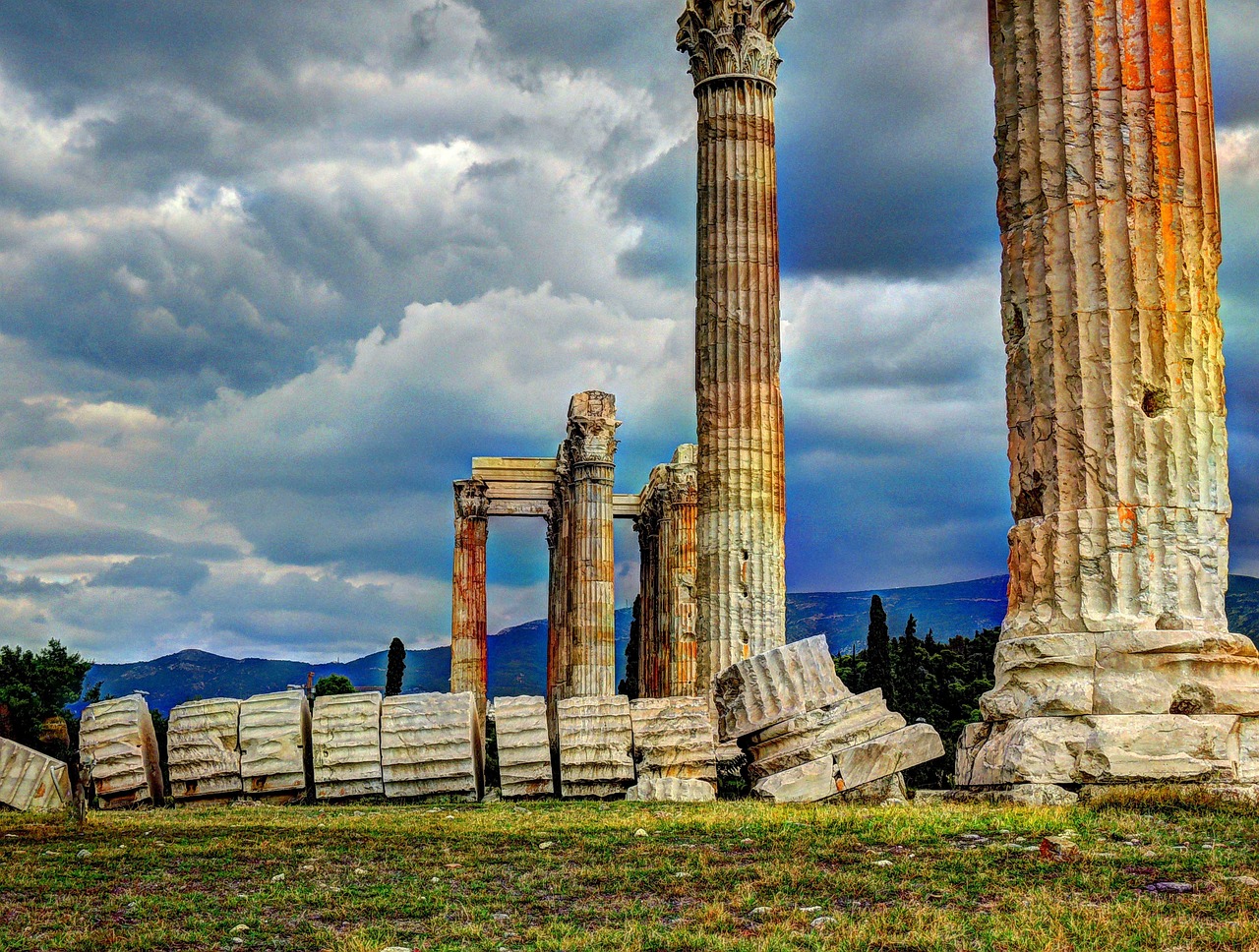Understanding Zeus: The Reigning Olympian
Zeus, known as Jupiter or Jove, occupies the esteemed position as the King of the Gods within Greek mythology. He symbolizes power over the sky, weather, law, destiny, and kingship. He is traditionally portrayed as an imposing, dignified figure adorned with a dark beard. His quintessential symbols include the lightning bolt, a royal sceptre, and an eagle.
Myths and Legends
Born as the youngest offspring of the Titans Kronos and Rheia, Zeus narrowly escaped being swallowed by his father, who had a dreadful habit of consuming his progeny upon birth. Rheia managed to save Zeus by disguising him with a stone swathed in cloth, which Kronos swallowed instead. Raised in concealed safety atop Mount Dikte in Crete, Zeus was nurtured by nymphs with the milk of the goat Amaltheia, while the Kouretes masked his cries with their rhythmic shield clashes.
Upon reaching maturity, Zeus enlisted the clever goddess Metis, who provided Kronos with a potion that compelled him to eject his other children. This act of liberation extended to the Cyclopes, who in gratitude bestowed Zeus with mighty thunderbolts, while the Hekatonkheires joined him in battling the Titans, ultimately leading to their defeat and entrapment in Tartarus.
After establishing his rule, Zeus and his siblings cast lots to divide control over the universe; Zeus claimed the skies, Poseidon the oceans, and Haides the underworld. However, upon receiving a prophecy warning him of a child from Metis destined to dethrone him, Zeus ingested her to thwart the threat. Their offspring, Athena, later emerged fully grown from his brow.
Zeus’s marriage to his sister Hera was fraught with conflict, characterized by frequent disputes. He was known for his many affairs with mortal women, manifesting in various forms, such as a swan to entice Leda or a shower of gold to reach Danaë. His most renowned mortal son, Herakles, received divine support throughout his endeavors and was ultimately welcomed to Olympus as a deity.
In his role as a cosmic arbiter, Zeus meted out justice and punishment for transgressions against divine law, targeting figures like Tantalos and Ixion for their hubris and impiety. Zeus’s decisions and actions were pivotal in shaping human fate through various myths.
Symbols and Depictions
The potency of Zeus is encapsulated in his signature weapon—the lightning bolt—alongside other significant symbols like the throne, sceptre, and eagle. Greek artistry frequently showcases these attributes, reinforcing his status as a powerful deity.
Notable Animals and Flora
The eagle and bull are sacred to Zeus. He famously abducted the young Ganymede in the form of an eagle and spirited away Europa disguised as a bull. Among the sacred plants, the evergreen holm oak and olive tree were particularly cherished. The rustling of oak leaves was believed to convey divine messages, especially at the oracle of Dodona, while olive wreaths were associated with victors at the Olympic Games.
Divine Attendants
As the preeminent god, Zeus was surrounded by various deities who supported his authority. His throne was flanked by four spirits representing Strength, Rivalry, Victory, and Force. Hermes, serving as his herald, delivered messages and acted as a mediator among gods, while Iris conveyed Zeus’s commands to the divine assembly. The goddess Themis, alongside the Moirai and Horai, upheld order in both divine and mortal realms.
The presence of Hestia, the virgin goddess who maintained the sacred hearth, and the wise Metis, who resided in his belly, further underscored Zeus’s multifaceted nature.
Family Ties
Zeus is the offspring of Kronos and Rheia and brother to multiple deities including Poseidon, Haides, Hera, Demeter, and Hestia. His union with Hera resulted in three children: Ares, Hebe, and Eileithyia. He also fathered numerous heroes and kings—most notably Perseus and Herakles.
Within the broader pantheon of Greek mythology, Zeus stands as a central figure revered across Hellenic traditions. Local variations, such as the Arcadian, Dodonaean, and Cretan manifestations of Zeus, highlight his importance in different cultural contexts.
Conclusion
In Greek mythology, Zeus commands respect as the ruling monarch of the divine. His narratives of power, betrayal, and redemption enrich the mythic landscape, ensuring his legacy endures across centuries.



